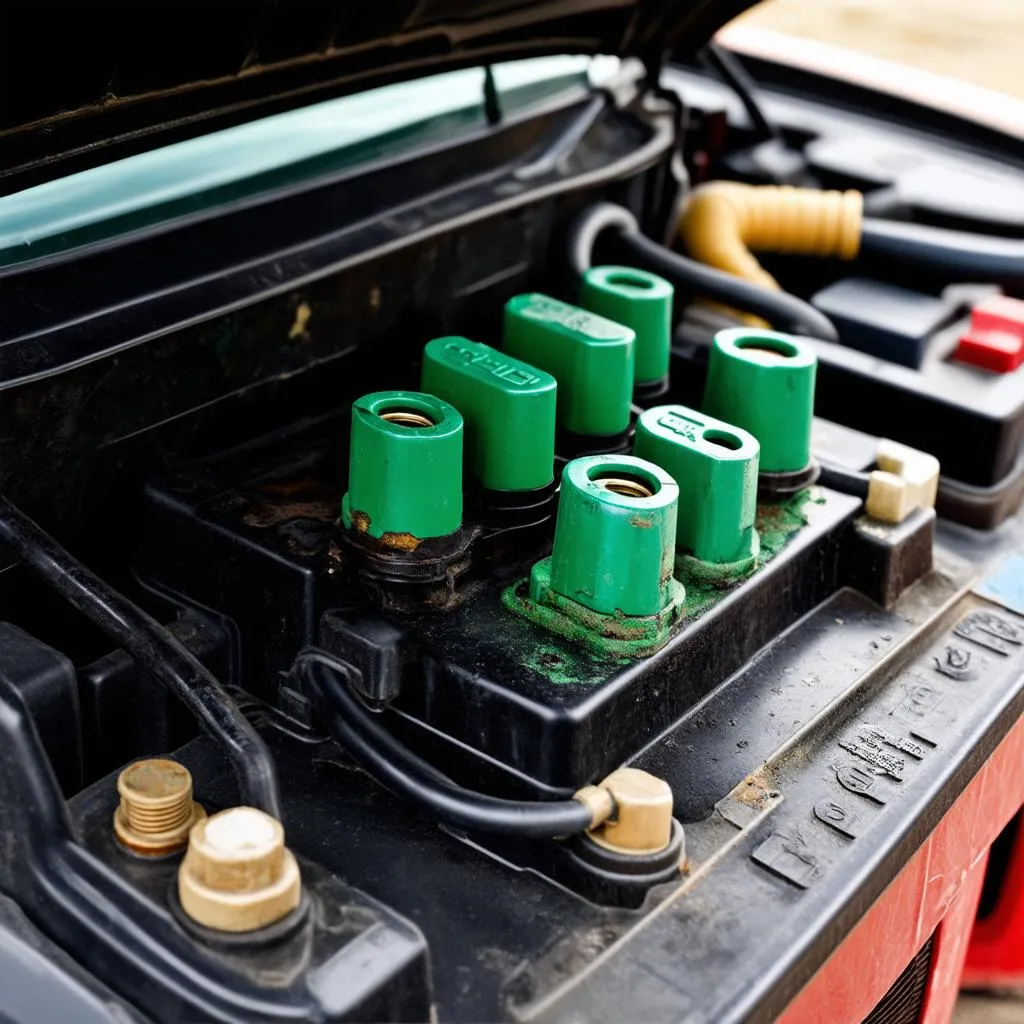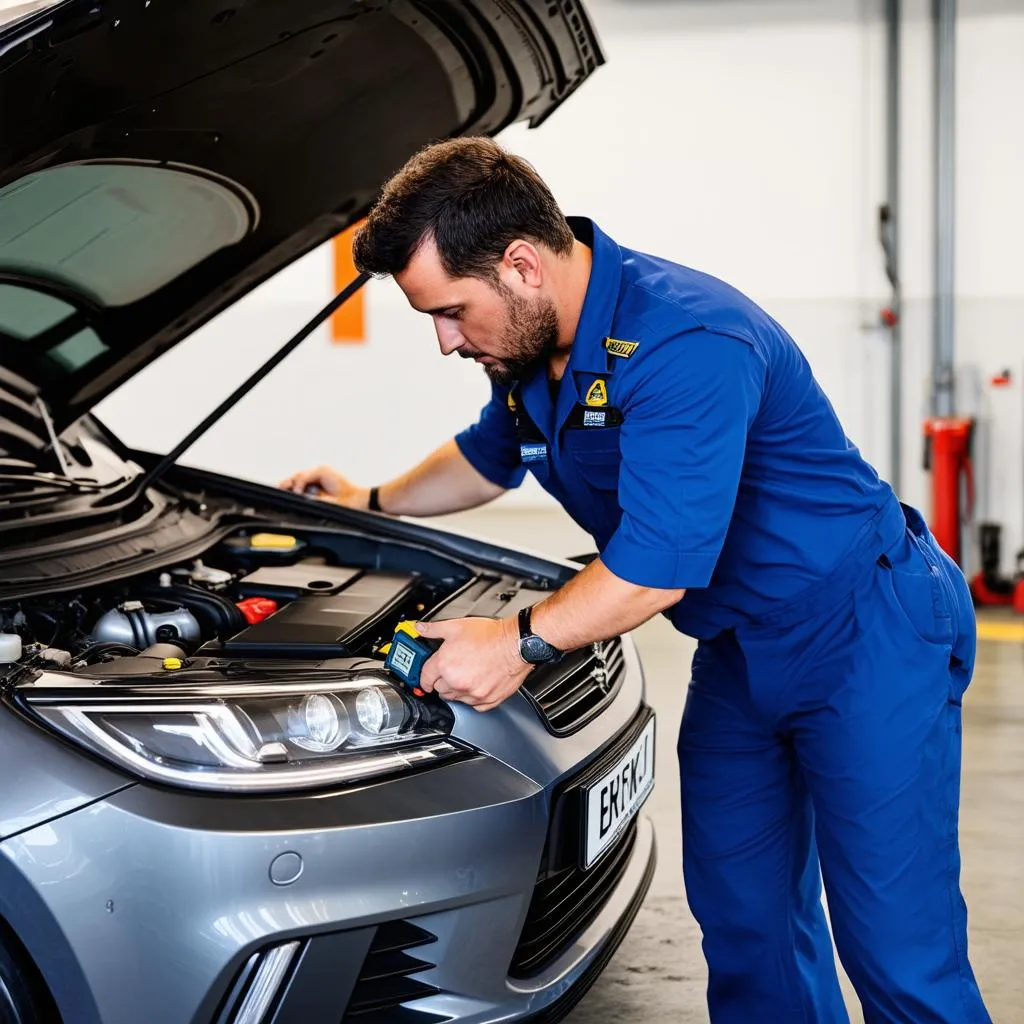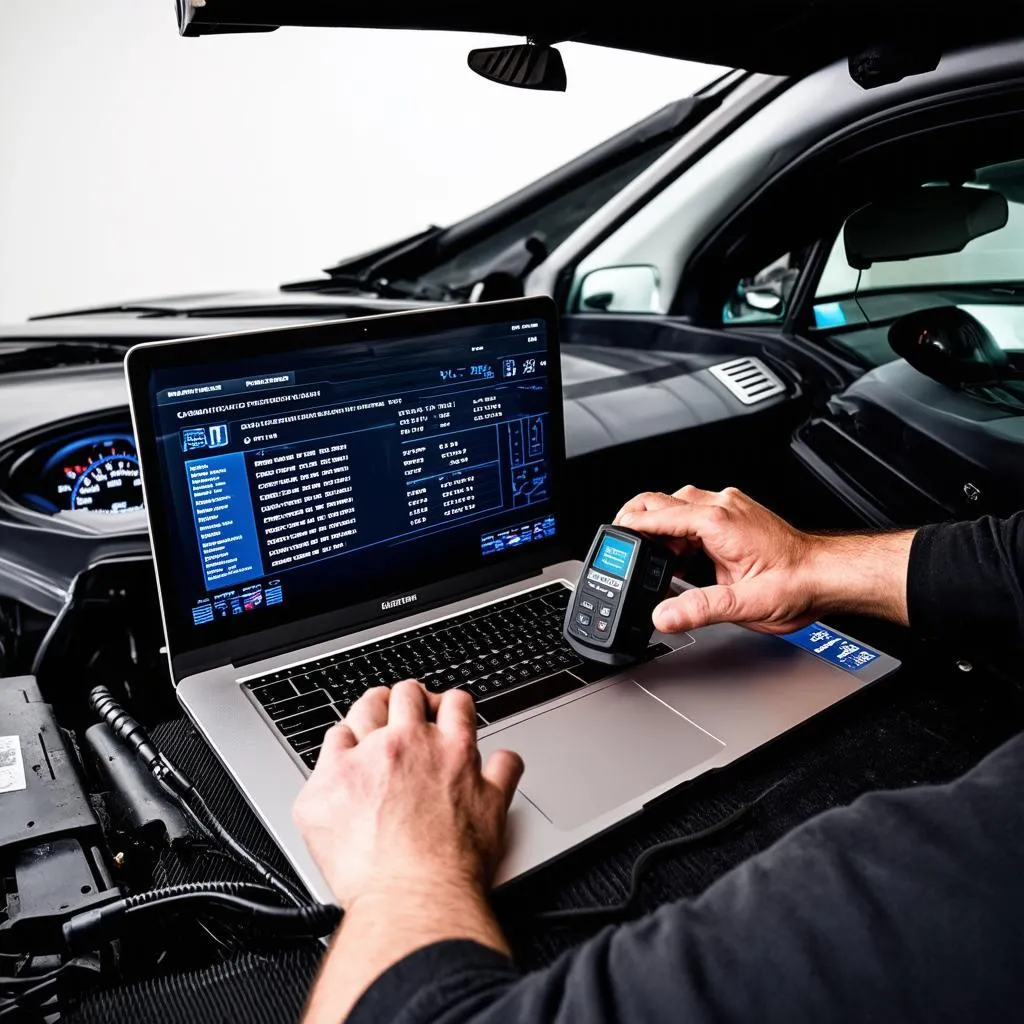“Just drove home from work, everything seemed fine. Now, I’m trying to head out for dinner, the lights on the dashboard are glowing, but my car won’t start. What could be wrong?”
Sound familiar? This frustrating situation is more common than you might think, and thankfully, often less serious than it seems. Let’s dive into the reasons why your car lights might be on, but the engine refuses to turn over, and how you can get back on the road.
Understanding the Issue: Lights On, Engine Off
This issue presents a head-scratcher for many car owners. After all, illuminated dashboard lights typically signal that the battery is alive and kicking, right? Not necessarily.
From a Mechanic’s Perspective: Experienced mechanics like John Miller from Chicago often see this issue. As he puts it, “Just because your lights turn on, doesn’t mean your battery has enough juice to crank the engine. It could be a weak battery or a failing starter.”
From a Technical Standpoint: Your car’s electrical system is a finely balanced network. The battery provides the initial power to start the engine, while the alternator takes over once the engine is running, recharging the battery and powering other electrical components. A weak link anywhere in this chain can lead to a no-start situation.
What’s Causing the Problem?
Let’s explore the most common culprits behind the “lights on, car won’t start” scenario:
1. Dead or Dying Battery: This is the most frequent offender. Your battery might have enough power to light up the dash, but not enough to engage the starter motor, especially in colder climates like you find in Boston, Massachusetts. Jumpstarting your car can be a temporary fix, but a trip to your trusted mechanic or an auto parts store like AutoZone on Elm Street is necessary to test and potentially replace the battery.
2. Faulty Starter Motor: The starter motor is responsible for turning over the engine to initiate the combustion process. When the starter motor fails, your car won’t start, even if the battery is in good condition.
3. Ignition Switch Problems: The ignition switch sends power to the starter when you turn the key. A malfunctioning ignition switch can prevent the starter from receiving the necessary power.
4. Fuel System Issues: If your car is out of gas (we’ve all been there!), or there’s a blockage in the fuel lines, the engine won’t be able to start, even if the electrical system is functioning correctly.
5. Other Electrical Problems: Loose or corroded battery terminals, a failing alternator, or even a blown fuse related to the ignition system can all contribute to this issue.
 Car Battery Terminals
Car Battery Terminals
Troubleshooting and Solutions
1. Check the Battery: Inspect your battery terminals for any signs of corrosion. Clean them with a wire brush and battery cleaner if necessary. If you suspect a weak battery, try jumpstarting your car. Remember, a jumpstart is a temporary solution; get your battery tested and replaced if needed.
2. Listen Carefully When You Turn the Key: Do you hear a clicking sound when you try to start the car? This could indicate a failing starter motor.
3. Examine Your Dashboard Lights: Pay attention to the warning lights that illuminate when you turn the key. Some vehicles have a “check engine” light that can offer clues about fuel system or other engine-related problems.
4. Consider Your Car’s Age and Service History: Older vehicles might be more susceptible to issues like ignition switch failures or fuel pump problems.
5. Seek Professional Help: If you’re unable to diagnose the problem yourself, don’t hesitate to call a qualified mechanic or tow your vehicle to a reputable repair shop. Using a professional diagnostic scanner like those found in European car dealerships can help pinpoint the exact cause of the issue.
 Mechanic Inspecting Car Engine
Mechanic Inspecting Car Engine
Frequently Asked Questions
Can a bad alternator cause my car lights to turn on but not start?
Yes, a faulty alternator can prevent your battery from charging properly. If the battery is drained, your car might have enough power to turn on the lights but not enough to start the engine.
My car started with a jump, but then it died again. What does this mean?
This could indicate a failing battery that’s no longer holding a charge. You’ll likely need a battery replacement.
What should I do if my car won’t start and I smell gasoline?
A strong gasoline odor could indicate a fuel leak. This is a serious issue, and you should not attempt to start your car. Call a mechanic or towing service immediately.
Need Help with Your Car Troubles?
Experiencing the frustration of car troubles? You’re not alone! We offer a wealth of information on common car problems and solutions, from understanding the difference between a bad battery and a bad alternator to troubleshooting basic car issues. You can also learn about essential diagnostic tools like the Autel Autolink AL329 and the top-of-the-line Autel MaxiSys.
Still stumped? Our team of auto repair experts is just a message away! Contact us on Whatsapp at +84767531508 for 24/7 support with installing and using diagnostic software. We’re here to help you get back on the road as quickly and safely as possible.
 Car Diagnostics on Laptop
Car Diagnostics on Laptop
Remember, while this article provides general guidance, always refer to your vehicle’s owner’s manual and consult a qualified mechanic for any serious car problems. Drive safe!